Joongang Ilbo among other reports of a recent study, which tells that the oldest Korean is Ch'oe Ae-gi, 109, of Cheongun-dong, Jongno-gu. The oldest man is Yi Yông-su, 105, of Naju, Northern Jeolla. The research team concluded that the factors behind a long life are regular eating and other daily habits, diligence, and an overall positive attitude.
Seems that research set to find the "secret behind living 100 years" has a high chance of getting funding in Korea.
 I'm reminded of Aarne Arvonen, at the moment aged 107, from my original hometown Järvenpää. After turning 18 I sometimes went to one of the few pubs in that town; remember someone pointing to an old man of short stature and telling that he's over 90. Sure, I thought. Mr Arvonen continued to be a steady customer of that pub, and perhaps still is; at least that was the place where we went for a beer three years ago with Arvonen and two Korean professors who were here to study Finnish centenarians as a part of their project. He used to walk there way past his 100th birthday, but then his legs got weaker and he had to start using a cab. Here are some snippets of his life from an article two years back: I'm reminded of Aarne Arvonen, at the moment aged 107, from my original hometown Järvenpää. After turning 18 I sometimes went to one of the few pubs in that town; remember someone pointing to an old man of short stature and telling that he's over 90. Sure, I thought. Mr Arvonen continued to be a steady customer of that pub, and perhaps still is; at least that was the place where we went for a beer three years ago with Arvonen and two Korean professors who were here to study Finnish centenarians as a part of their project. He used to walk there way past his 100th birthday, but then his legs got weaker and he had to start using a cab. Here are some snippets of his life from an article two years back:In 1917 Arvonen was recruited to help build fortifications in St. Petersburg. He had a six-month contract, but he did not get a chance to work very long. At first the work was brought to a halt by the March Revolution. Then Arvonen's friend died of smallpox, and the whole team was quarantined.
"I was sent to Poland, but I became homesick, and with no money I went to Finland by train. The other passengers helped me hide from the conductor."
Back in Finland Arvonen continued to live on the streets of Helsinki and was recruited by the Red Guards. During the Finnish Civil War he was taken prisoner by the Whites at the battle of Joutseno and was sent to the prison camp in Tammisaari for a year. One of the guards at the camp was his own uncle.
[...]
 "After the [Second World] war I did not have any work and I dared not get into anything. Then I found out that some American Quakers were hiring people to go to Lapland to do reconstruction work, and so I went there. At that time I was almost 50 years old. The rest were just over 20." "After the [Second World] war I did not have any work and I dared not get into anything. Then I found out that some American Quakers were hiring people to go to Lapland to do reconstruction work, and so I went there. At that time I was almost 50 years old. The rest were just over 20."
"In Lapland I worked at many construction sites. From there I went on to Norway, and from there to France. I had studied Spanish, and I was interested in going to Spain. I hitchhiked to Barcelona and back to Paris. By then I had run out of money and I wrote to my younger daughter who sent me some."
[...]
The vivacious 105-year-old keeps track of world events by radio. His eyesight is poor, so he cannot watch television any more. For the same reason he can no longer indulge in a hobby that is dear to him: astronomy. Arvonen used to enjoy calculating the orbits of the planets.
"I never had an academic education, but ever since I was a schoolboy I have been reading books. Isaac Newton is a good example to follow. Einstein's theories get so complicated that I wonder if they're of much use. Newton's laws - force and counterforce - apply to other parts of life too. There's always a counterforce. People have to know when to give in."
Here's another piece on Aarne Arvonen, made when he was 102.
|
 I'm reminded of Aarne Arvonen, at the moment aged 107, from my original hometown Järvenpää. After turning 18 I sometimes went to one of the few pubs in that town; remember someone pointing to an old man of short stature and telling that he's over 90. Sure, I thought. Mr Arvonen continued to be a steady customer of that pub, and perhaps still is; at least that was the place where we went for a beer three years ago with Arvonen and two Korean professors who were here to study Finnish centenarians as a part of their project. He used to walk there way past his 100th birthday, but then his legs got weaker and he had to start using a cab. Here are some snippets of his life from an article two years back:
I'm reminded of Aarne Arvonen, at the moment aged 107, from my original hometown Järvenpää. After turning 18 I sometimes went to one of the few pubs in that town; remember someone pointing to an old man of short stature and telling that he's over 90. Sure, I thought. Mr Arvonen continued to be a steady customer of that pub, and perhaps still is; at least that was the place where we went for a beer three years ago with Arvonen and two Korean professors who were here to study Finnish centenarians as a part of their project. He used to walk there way past his 100th birthday, but then his legs got weaker and he had to start using a cab. Here are some snippets of his life from an article two years back:


 "After the [Second World] war I did not have any work and I dared not get into anything. Then I found out that some American Quakers were hiring people to go to Lapland to do reconstruction work, and so I went there. At that time I was almost 50 years old. The rest were just over 20."
"After the [Second World] war I did not have any work and I dared not get into anything. Then I found out that some American Quakers were hiring people to go to Lapland to do reconstruction work, and so I went there. At that time I was almost 50 years old. The rest were just over 20."
 Following the sitemeter referrals leads sometimes to interesting discoveries. So me having some time ago made a note on one of the Pearl Sisters duo singing again googledly lead me to a site of psychedelic music, which also has a quite extensive introduction on
Following the sitemeter referrals leads sometimes to interesting discoveries. So me having some time ago made a note on one of the Pearl Sisters duo singing again googledly lead me to a site of psychedelic music, which also has a quite extensive introduction on 
 thought it's not that valid word anymore, but there it was on the main page of a Korean daily in a campaign with a carmaker (foreign owner, "Korean" car), in which two vehicles are given out to those two who are judged to present their need for an own car (maik'a) the best: "we make true your dream of an own car".
thought it's not that valid word anymore, but there it was on the main page of a Korean daily in a campaign with a carmaker (foreign owner, "Korean" car), in which two vehicles are given out to those two who are judged to present their need for an own car (maik'a) the best: "we make true your dream of an own car". 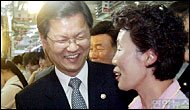 As during the elections to show that politicians are on the side of the people (
As during the elections to show that politicians are on the side of the people (
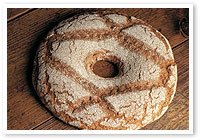 What category would the following very very welbing breakfast typical in our family be included: three-grain wholemeal porridge, two pieces of wholemeal rye bread (see pic) with tomato, low-fat cheese, no-fat turkey cold cuts, milk coffee ("latte")?
What category would the following very very welbing breakfast typical in our family be included: three-grain wholemeal porridge, two pieces of wholemeal rye bread (see pic) with tomato, low-fat cheese, no-fat turkey cold cuts, milk coffee ("latte")?
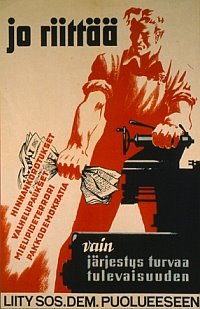
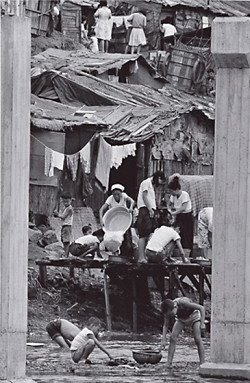 First things first: the Cheonggyecheon restoration project has been awarded the first price in the Venice Biennale for a public administration project (
First things first: the Cheonggyecheon restoration project has been awarded the first price in the Venice Biennale for a public administration project (
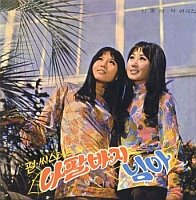 Nice example of the use of the terms ajôssi and ajumma in a
Nice example of the use of the terms ajôssi and ajumma in a 
 A portal site for making purchases at Namdaemun market has been opened at
A portal site for making purchases at Namdaemun market has been opened at 
 얼마전에 죽은 핀란드 뮤지션
얼마전에 죽은 핀란드 뮤지션  아버지랑 둘이서 사는 직장을 그만 둔 30살의 여자가
아버지랑 둘이서 사는 직장을 그만 둔 30살의 여자가 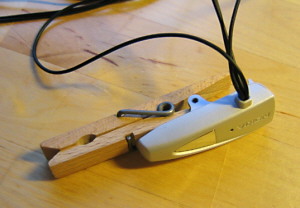 한국의 동네사람들이 내가 카메라의 플래쉬를 테이프로 고친 것을 보고 잘 사는 선진국사람들이 참 검소하게 사는구나 했다. 또 한편으론 떡방앗간의 박 사장은 부모한테 돈 보내 달라고 새로운 것을 사라고 그렇기도 했다. 같은 골목의 미용실 원장한테 물었더니 검소하다는 말은 베풀 줄 모르는 뜻으로 이해할 수도 있으니 그렇게 좋지 않은 말일 수도 있다.
한국의 동네사람들이 내가 카메라의 플래쉬를 테이프로 고친 것을 보고 잘 사는 선진국사람들이 참 검소하게 사는구나 했다. 또 한편으론 떡방앗간의 박 사장은 부모한테 돈 보내 달라고 새로운 것을 사라고 그렇기도 했다. 같은 골목의 미용실 원장한테 물었더니 검소하다는 말은 베풀 줄 모르는 뜻으로 이해할 수도 있으니 그렇게 좋지 않은 말일 수도 있다.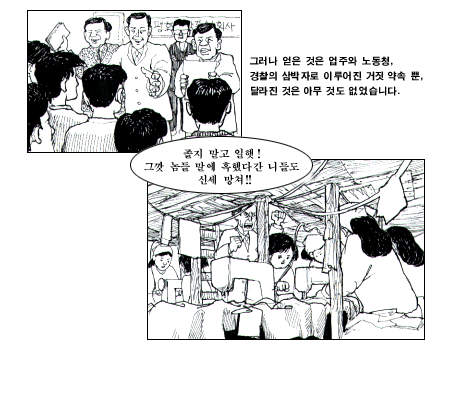
 Hankyoreh has an
Hankyoreh has an 